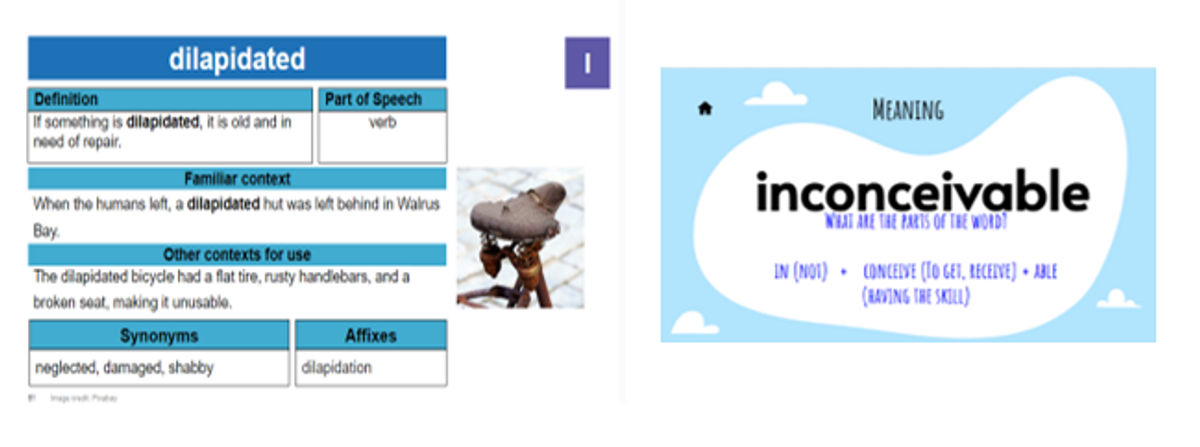Literacy

Vocabulary Development
Vocabulary is listed as one of the ‘Big Six’ components that influence reading and language development alongside Oral Language, Phonological awareness, Phonics, Fluency, and Comprehension. Vocabulary refers to the collection of words that a person knows and uses. Vocabulary development, is the process of acquiring new words.
Dr Deslea Konza says that the number and variety of words that children know in the preschool and initial years of schooling, is a significant predictor of reading comprehension in the middle and secondary years of schooling and of broader academic and vocational success.
There is wide variation in the first words that children produce. However, data from English-speaking countries reflect the following general milestones for spoken (expressive) vocabulary:
- 12 months: 2 words plus mummy and daddy (or equivalent in languages other than English)
- 18 months: 10-50 words
- 2 years: 300 words
- 2.5 years: 450 words
- 3 years: 1000 words
- 4 years: 2000 words
- 5 years: 5000 plus words
- 17 years: 36 000 to 136 000 words.
The relationship between spoken vocabulary cannot be overstated. Spoken language is the foundation for read and written language. This means that an individual’s knowledge of phonology, grammar, and semantics in spoken language supports their reading and writing skills.
So how can parents assist is vocabulary development at home? What does explicit vocabulary development look like at school?
At school
Teachers will unpack new vocabulary by looking at the part of speech, synonyms and antonyms, morphology, including the prefix, base and suffix, and etymology of the new words. These words are often selected from class texts, inquiry or science lessons. Once introduced, teachers will aim to use these words in context to allows students to see how the word in used in practice whilst also pointing out the nuance that is achieved by using precise and specific vocabulary.
At home
As with oral language, parents and caregivers can best support their children in learning vocabulary by encouraging them to talk and listen for a range of different purposes, and reading aloud to them often. Children learn new words by hearing them used meaningfully many times and by being encouraged to use new words in their own talk. Other ways to support vocabulary learning include the following:
Become ‘word aware’ as you read aloud. One of the best places for children to hear new words used meaningfully is in great children’s literature. Comment on words you know are new to your child. What do they sound like, what could they mean, what do they remind you of?
Get your children to become ‘word detectives’ when out and about. Notice new and interesting words on street signs, at the zoo or museum, on menus or on pamphlets.
Use a wide vocabulary when speaking to your child. Encourage children to ask the meanings of unfamiliar words and to use new words in their own spoken communication.
Sarah Watkins
Acting Assistant Principal/Literacy Specialist

